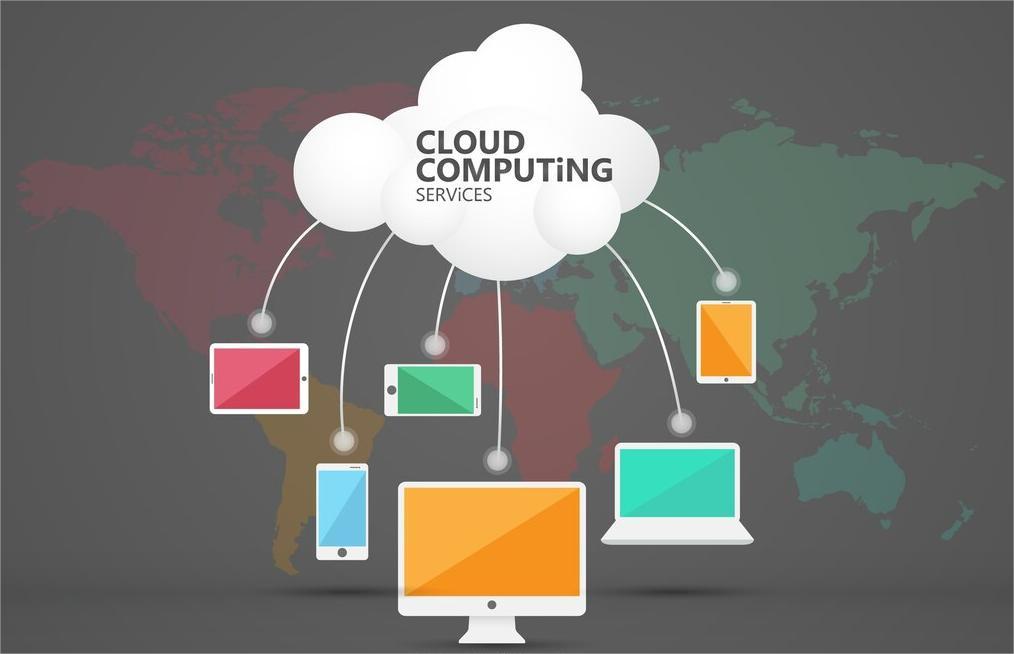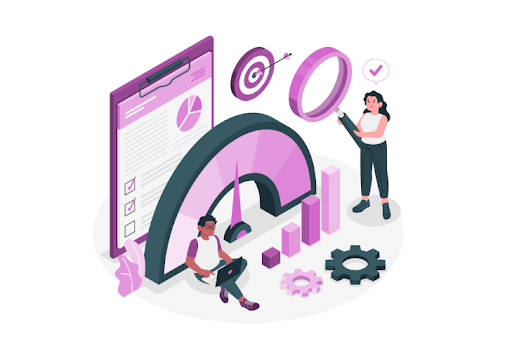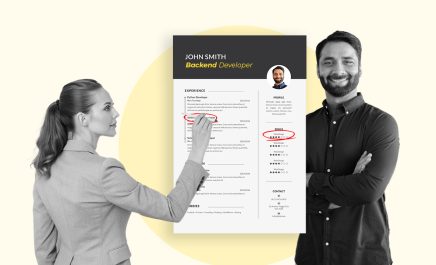How SaaS Companies Can Optimize Performance by Hiring Advanced Cloud Computing Engineers
- Sathvik Poojary
- February 4, 2025
- 5 Minute Read

SaaS (Software as a Service) companies usually face unique challenges when offering streamlined, high-performance solutions to their clients. From ensuring uptime to managing rapid user growth and ensuring data safety, the demands on SaaS platforms are constantly thriving.
Cloud computing is a critical enabler in tackling these challenges. With cloud technologies, SaaS businesses can scale effortlessly, optimize performance, and meet security standards—if they develop the right strategy.
But what’s the secret to using cloud computing effectively? The answer lies in hiring advanced cloud computing engineers who can craft cloud strategies aligned with business goals. This post will break down how these engineers can keep up with cloud computing trends in SaaS and enhance the performance of your business.
The Importance of Advanced Cloud Computing Engineers in SaaS

First, let’s define what advanced cloud computing engineers do. These are the architects of your cloud infrastructure. They design and implement cloud solutions that power your applications and ensure everything runs smoothly. Their expertise spans cloud architecture, security, optimization, and much more.
Cloud infrastructure is crucial for SaaS companies because SaaS is deeply tied to it. The better the cloud infrastructure, the smoother the SaaS platform runs.
Hiring a cloud computing expert isn’t just about having the right technical skills. It’s about creating a cloud strategy for SaaS that aligns with the company’s broader business goals. A good cloud engineer doesn’t just optimize performance but is also optimized to achieve results. This ensures that every cloud decision drives the business.
Key Areas Where Cloud Computing Engineers Optimize SaaS Performance
Let’s break down how cloud computing engineers boost performance in a few key areas. Here’s where the magic happens:
1. Infrastructure Management
Your infrastructure is the foundation of everything you do. Here’s how engineers ensure it’s rock solid:
- Scalable & Resilient Architectures: As your SaaS grows, your infrastructure needs to keep up. Cloud engineers create systems that scale without breaking a sweat—no more crashes when traffic spikes.
- Infrastructure as Code (IaC): Cloud engineers automate your infrastructure by weaving magic with code. This ensures quicker launches, fewer hiccups, and improved consistency!
Why does this matter?
- Think of a massive influx of users. With the right infrastructure, your platform doesn’t just survive—it thrives.
2. Performance Monitoring & Optimization
Your users are picky (rightfully so!). Slow performance = unhappy customers. So, how do cloud engineers keep things running smoothly?
- Real-Time Monitoring: Tools like CloudWatch and New Relic give engineers a bird’s eye view of your platform. They can see when something is about to go wrong and fix it before anyone notices.
- Load Testing & Tuning: Before launching a major feature, cloud engineers stress-test your platform. This helps ensure that it performs flawlessly no matter how many users use it.
Why does this matter?
- Your platform needs to be fast and responsive—always. Engineers ensure it’s optimized, even under pressure.
3. Security & Compliance
With cyber threats constantly evolving and around 2,200 cyber attacks occurring daily, security is not to be taken lightly. Cloud engineers ensure that your platform is locked down tight.
- Data Protection: Engineers use encryption, identity management, and constant monitoring to keep client data secure.
- Regulatory Compliance: Be it iGDPR or HIPAA, cloud engineers ensure your platform adheres to all the prevailing regulations, avoiding costly penalties.
Why does this matter?
- Security isn’t just about preventing hacks; it’s about earning your users’ trust.
4. Cost Management
Cloud computing can be expensive, but engineers are the gatekeepers who ensure you don’t spend unnecessarily.
- Optimizing Resource Allocation: Cloud engineers know when to scale up and when to scale down. They ensure you’re not wasting money on unused resources.
- Cost Management Tools: Tools like AWS Cost Explorer monitor your spending and pinpoint where you can save.
Why does this matter?
- Cloud infrastructure should be an asset, not a drain on your budget.
Best Practices for Hiring Advanced Cloud Computing Engineers
You know you need to hire cloud engineers. But how do you make sure you get the right people? Here’s what to look for.
1. Identifying Necessary Skills and Qualifications
Look for cloud engineers with expertise in:
- AWS, Azure, or Google Cloud
- Cloud security (always top priority!)
- DevOps and Kubernetes (because everything’s better with containers)
- Infrastructure as Code (IaC) tools like Terraform and Ansible
Why does this matter?
- The right skills mean your cloud engineers can hit the ground running and make an immediate impact.
2. Evaluating Experience with Relevant Cloud Platforms
Experience matters—especially with the cloud platform your SaaS uses:
- AWS, Azure, or Google Cloud (pick your favorite!)
- Engineers should know the ins and outs of your platform to ensure seamless integration.
Why does this matter?
- The more experience they have with your tech stack, the smoother the transition.
3. Assessing Problem-Solving & Cultural Fit
Yes, tech skills are important, but you also need problem solvers and team players:
- They should be able to solve complex issues on the fly.
- Look for candidates who understand the business impact of their work.
Why does this matter?
- Cloud engineers don’t just fix problems—they prevent them and work well with your team.
Integrating Cloud Computing Engineers into Your SaaS Team
Hiring is step one. Now, you need to make sure these cloud engineers integrate seamlessly into your team. Here’s how:
1. Fostering Collaboration Between Development and Operations
Cloud engineers shouldn’t work in isolation. Create a DevOps culture where developers and engineers collaborate closely to:
- Deploy faster.
- Iterate quickly.
- Fix problems as they arise.
Why does this matter?
- Fast deployment cycles and a well-oiled machine are key to SaaS success.
2. Encouraging Continuous Learning and Professional Development
The cloud world changes quickly. Keep your engineers ahead of the curve by supporting:
- Ongoing certifications and training.
- Exposure to new tools and cloud innovations.
Why this matters?
- The latest cloud trends are constantly shaping SaaS—your engineers need to be on top of it.
Measuring the Impact of Cloud Computing Engineers on SaaS Performance
So, you’ve hired the best cloud engineers, but how do you measure their impact? Here are a few KPIs (Key Performance Indicators) to track:
1. Key Metrics to Track

- System uptime: High uptime = happy users.
- Response times: Fast load times are crucial for user retention.
- User satisfaction: Keep an eye on reviews and feedback—this can reveal the true impact of cloud optimization.
These metrics show whether the cloud infrastructure is truly working at its best.
2. Analyzing Improvements in Scalability & Reliability
As your user base grows:
- Is your platform scaling efficiently?
- Does performance stay consistent across geographies?
If your platform scales smoothly and users have a consistent experience, your cloud engineers are nailing it.
Final Thoughts
Hiring an advanced cloud computing engineer is not just about filling a technical gap—it’s a strategic investment in your SaaS future. These engineers will:
- Build scalable, secure, and reliable infrastructure.
- Drive down costs while improving performance.
- Keep your platform ahead of the curve with the latest cloud innovations.
Cloud computing is your best friend in the SaaS world, but only when you have the right team to make it work. If you’re looking to hire skilled cloud engineers, consider agencies like Uplers, who specialize in connecting you with top talent.
With the right cloud engineers on your team, your SaaS platform won’t just survive—it will thrive!
Frequently Asked Questions (FAQs)
What specific skills should we look for when hiring a cloud computing engineer for a SaaS company?
Ans: Look for a cloud wizard skilled in AWS, Azure, Google Cloud, cloud security, Kubernetes, and Infrastructure as Code (IaC) tools.
How do cloud computing engineers contribute to cost optimization in SaaS operations?
Ans: Cloud engineers streamline resource allocation, ensuring scalable infrastructure. They also leverage cost management tools to control excessive spending.
What do cloud computing engineers face the common challenges in enhancing SaaS performance?
Ans: Many cloud engineers struggle with ensuring high availability, juggling increased traffic, and safeguarding security—all while keeping performance up to the mark.
What tools are commonly used by cloud computing engineers for performance monitoring?
Ans: CloudWatch, New Relic, Datadog, and Prometheus are common tools for monitoring and optimizing cloud performance.

Thank you for submitting the details!
We will keep your information safe. Feel free to contact us with any questions at hello@uplers.com
Please check your email for next steps shared by Robert.















